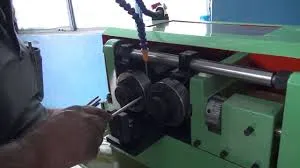
-
 Afrikaans
Afrikaans -
 Albanian
Albanian -
 Amharic
Amharic -
 Arabic
Arabic -
 Armenian
Armenian -
 Azerbaijani
Azerbaijani -
 Basque
Basque -
 Belarusian
Belarusian -
 Bengali
Bengali -
 Bosnian
Bosnian -
 Bulgarian
Bulgarian -
 Catalan
Catalan -
 Cebuano
Cebuano -
 Corsican
Corsican -
 Croatian
Croatian -
 Czech
Czech -
 Danish
Danish -
 Dutch
Dutch -
 English
English -
 Esperanto
Esperanto -
 Estonian
Estonian -
 Finnish
Finnish -
 French
French -
 Frisian
Frisian -
 Galician
Galician -
 Georgian
Georgian -
 German
German -
 Greek
Greek -
 Gujarati
Gujarati -
 Haitian Creole
Haitian Creole -
 hausa
hausa -
 hawaiian
hawaiian -
 Hebrew
Hebrew -
 Hindi
Hindi -
 Miao
Miao -
 Hungarian
Hungarian -
 Icelandic
Icelandic -
 igbo
igbo -
 Indonesian
Indonesian -
 irish
irish -
 Italian
Italian -
 Japanese
Japanese -
 Javanese
Javanese -
 Kannada
Kannada -
 kazakh
kazakh -
 Khmer
Khmer -
 Rwandese
Rwandese -
 Korean
Korean -
 Kurdish
Kurdish -
 Kyrgyz
Kyrgyz -
 Lao
Lao -
 Latin
Latin -
 Latvian
Latvian -
 Lithuanian
Lithuanian -
 Luxembourgish
Luxembourgish -
 Macedonian
Macedonian -
 Malgashi
Malgashi -
 Malay
Malay -
 Malayalam
Malayalam -
 Maltese
Maltese -
 Maori
Maori -
 Marathi
Marathi -
 Mongolian
Mongolian -
 Myanmar
Myanmar -
 Nepali
Nepali -
 Norwegian
Norwegian -
 Norwegian
Norwegian -
 Occitan
Occitan -
 Pashto
Pashto -
 Persian
Persian -
 Polish
Polish -
 Portuguese
Portuguese -
 Punjabi
Punjabi -
 Romanian
Romanian -
 Russian
Russian -
 Samoan
Samoan -
 Scottish Gaelic
Scottish Gaelic -
 Serbian
Serbian -
 Sesotho
Sesotho -
 Shona
Shona -
 Sindhi
Sindhi -
 Sinhala
Sinhala -
 Slovak
Slovak -
 Slovenian
Slovenian -
 Somali
Somali -
 Spanish
Spanish -
 Sundanese
Sundanese -
 Swahili
Swahili -
 Swedish
Swedish -
 Tagalog
Tagalog -
 Tajik
Tajik -
 Tamil
Tamil -
 Tatar
Tatar -
 Telugu
Telugu -
 Thai
Thai -
 Turkish
Turkish -
 Turkmen
Turkmen -
 Ukrainian
Ukrainian -
 Urdu
Urdu -
 Uighur
Uighur -
 Uzbek
Uzbek -
 Vietnamese
Vietnamese -
 Welsh
Welsh -
 Bantu
Bantu -
 Yiddish
Yiddish -
 Yoruba
Yoruba -
 Zulu
Zulu
Wholesale Pricing Guide for Thread Rolling Machines and Equipment for Your Manufacturing Needs
Understanding Wholesale Thread Rolling Machine Prices
Thread rolling machines are essential tools in the manufacturing and metalworking industries, used primarily for producing high-quality threads on various materials. These machines offer advantages over traditional cutting methods, including enhanced strength and superior surface finish. As the demand for efficiency and precision increases in many sectors, understanding the pricing of these machines becomes critical for manufacturers and consumers alike.
Factors Influencing Prices
1. Type of Machine The cost of thread rolling machines can vary significantly based on their type. Common variations include horizontal and vertical thread rollers, and specialized machines designed for specific threading applications. Horizontal machines typically cost more due to their complexity and versatility.
2. Capacity and Size The size and capacity of the machine largely determine its price. Larger machines capable of rolling larger components or handling heavier workloads usually come at a premium. Smaller units for less demanding tasks are often more affordable, making them suitable for small-scale operations or workshops.
3. Brand and Manufacturer Brand reputation plays a crucial role in pricing. Established manufacturers with a track record of quality and durability often command higher prices. In contrast, lesser-known brands might offer lower initial costs but can sometimes compromise on quality and longevity.
4. Material and Build Quality The materials used in manufacturing thread rolling machines can substantially affect their prices. High-quality steel and advanced manufacturing processes contribute to a machine’s durability and performance, justifying a higher price tag.
5. Technology and Features Modern machines often come equipped with advanced technologies, such as CNC (Computer Numerical Control) capabilities, automation, and enhanced precision features. These machines offer greater efficiency and reduced manual intervention, leading to higher prices compared to basic models.
6. Customization Options Many manufacturers offer customization options tailored to specific requirements. While customization adds to the overall cost, it can result in significant long-term savings by optimizing production processes.
wholesale thread rolling machine price list

Average Price Ranges
The price of wholesale thread rolling machines can vary widely. For basic models, prices may start as low as $3,000 to $5,000. Mid-range machines with better features and capacities can cost between $10,000 and $25,000. High-end, fully automatic machines equipped with the latest technology and larger capacities might range from $30,000 to $100,000 or more.
How to Make the Right Purchase
1. Assess Your Needs Evaluate your production requirements, including the types of materials and sizes you will be working with, as well as the complexity of the threads needed.
2. Research Compare different brands and models. Read reviews and get feedback from current users to gauge reliability and performance.
3. Consider Total Cost of Ownership Beyond the initial purchase price, factor in maintenance costs, potential downtime, and the efficiency of the machine. A more expensive machine may ultimately save money in the long run through reduced operational costs and increased productivity.
4. Negotiate and Buy in Bulk If you're a manufacturer or a distributor, consider negotiating prices, especially if you're purchasing multiple machines. Some suppliers offer discounts for bulk orders or long-term contracts.
Conclusion
Understanding the price dynamics of wholesale thread rolling machines is crucial for making informed purchasing decisions. By considering factors such as machine type, capacity, brand reputation, and technological features, consumers can ensure they invest wisely in equipment that meets their production needs efficiently. As the industry continues to evolve, staying updated on market trends and price fluctuations will help businesses remain competitive and optimize their manufacturing processes.
